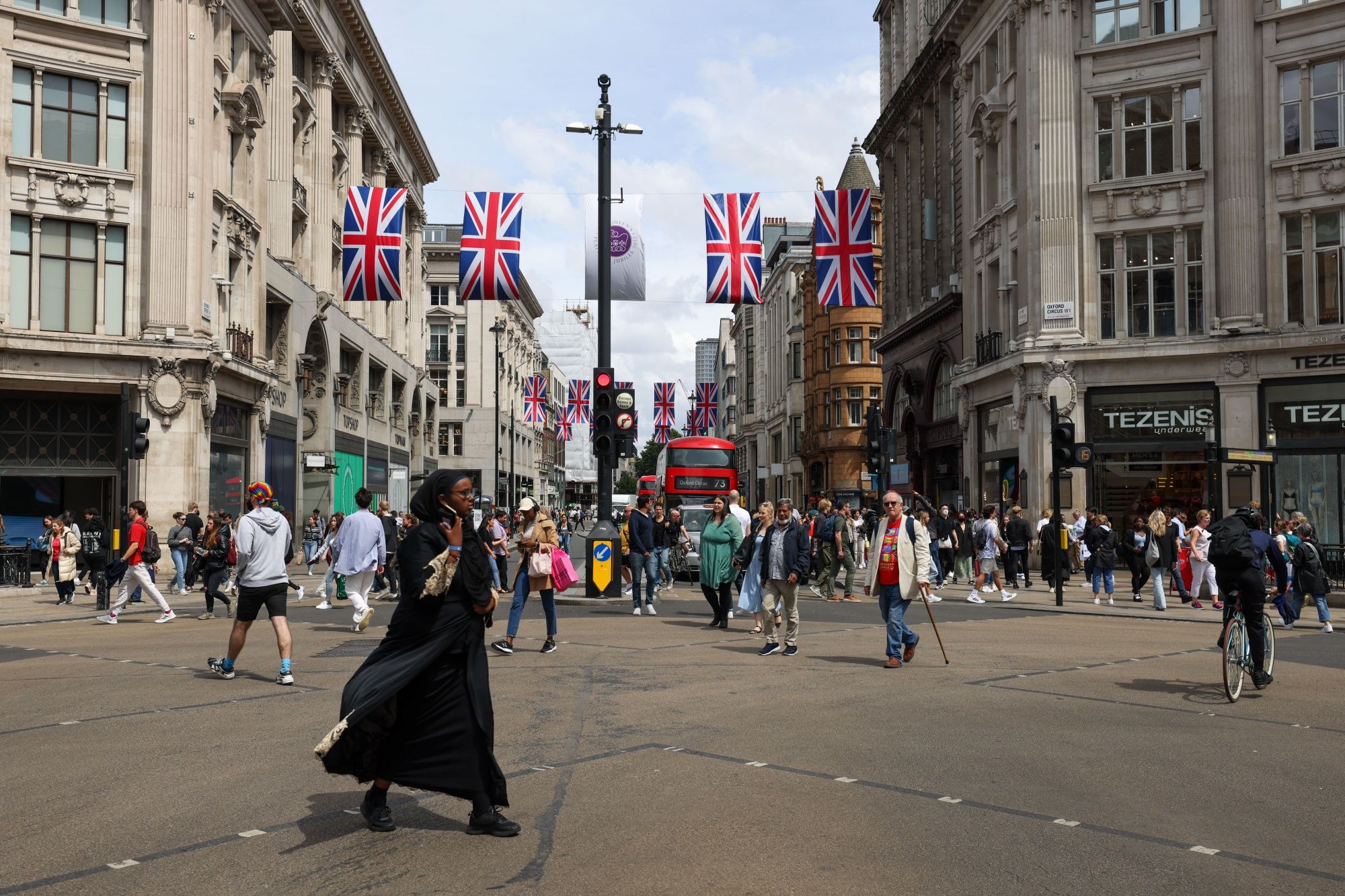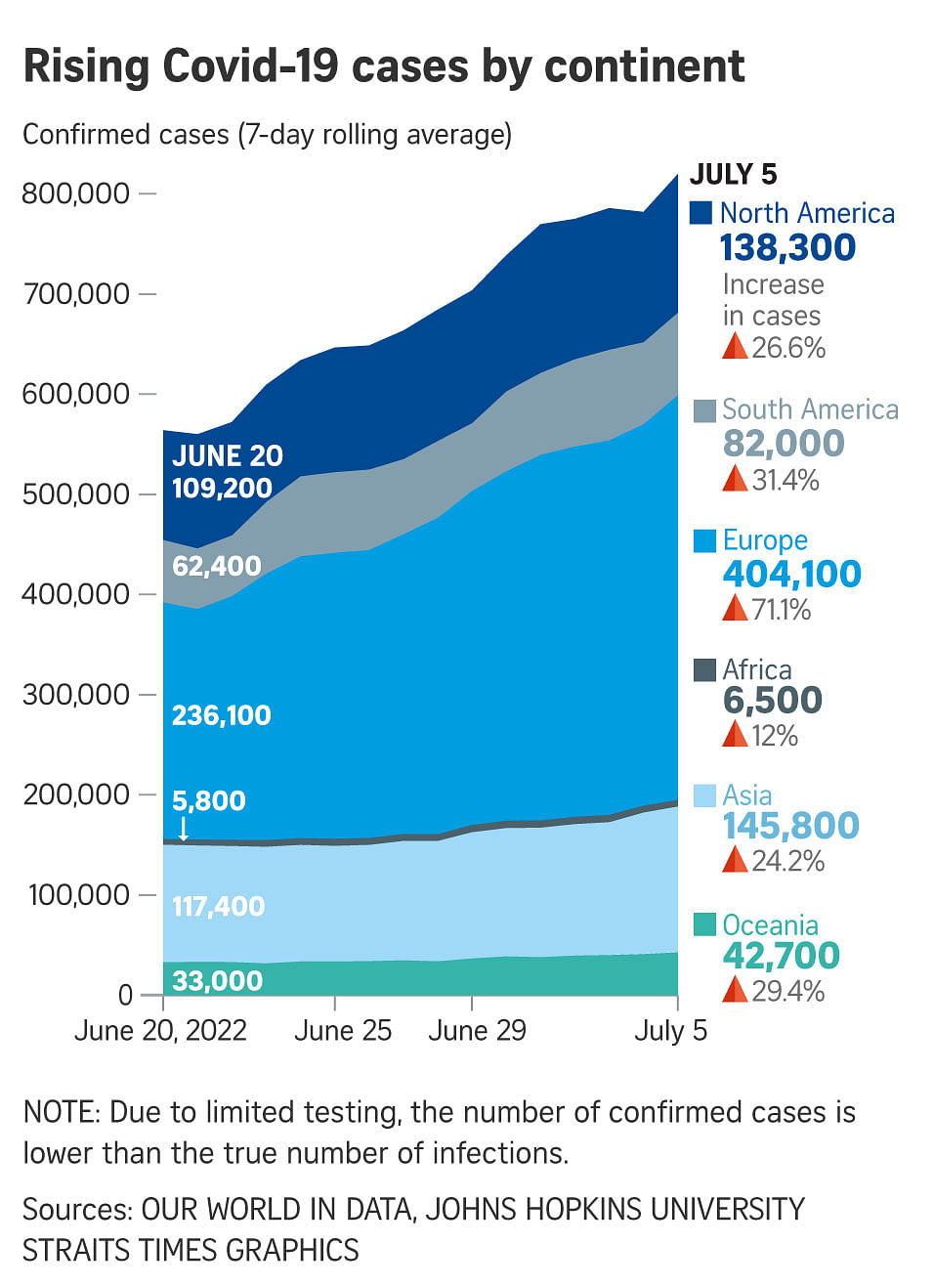Europe is at centre of new wave of Covid-19 infections, WHO says
Sign up now: Get ST's newsletters delivered to your inbox

Last week Britain reported a 32 per cent rise in infections and said that hospital admissions are climbing.
PHOTO: BLOOMBERG
Follow topic:
GENEVA (BLOOMBERG) - Europe is at the centre of a resurgence in Covid-19 infections as more people mix at large-scale events and travel, according to the World Health Organisation.
"We are seeing a much more intense wave of the disease passing through Europe again," Dr Michael Ryan, executive director of the WHO's Health Emergencies Programme, said at a media briefing on Wednesday (July 6). "And we will see it happen elsewhere - we are already seeing it in South-east Asia and in the eastern Mediterranean region as well."
Overall, the number of Covid-19 infections rose 30 per cent globally in the past two weeks, with the Omicron subvariants BA.4 and BA.5 driving the increase in Europe and the US. The agency said it was also following a new sublineage of subvariant BA2.75 which had been detected in India.
The increase in cases in Europe during the summer - when transmission should be more difficult because people are outside - results from people swapping one kind of mixing for another, such as attending large concerts and travelling more, Dr Ryan said.
The new wave of infections isn't yet leading to a surge in intensive-care admissions or a serious increase in the number of deaths, as a result of vaccine protection.
Less deadly
Last week Britain reported a 32 per cent rise in infections and said that hospital admissions are climbing, with intensive-care cases spreading among older age groups.
The rise in hospitalisations is still far below previous waves, and widespread vaccination has made the pandemic far less deadly.
The WHO said countries should ensure their "immunological walls" remained strong, providing booster shots as necessary to vulnerable individuals, maintaining surveillance measures, introducing antivirals and using tried and tested countermeasures to reduce the chances for transmission.
Director-General Tedros Adhanom Ghebreyesus said that while any resurgence in cases has to be taken seriously, the world is in a better situation to fight the virus now than it was back in 2020 when it started to sweep around the world.
"We won't be the hostage of the virus like we have in the past two years," he said at the briefing. "We know the virus, we have better tools to fight it."
Separately, Dr Tedros said the organisation remained concerned about the spread of monkeypox - with more than 6,000 cases in 58 countries - and will reconvene the agency's emergency committee within the next three weeks to determine if the outbreak should be considered a public health emergency of international concern.


